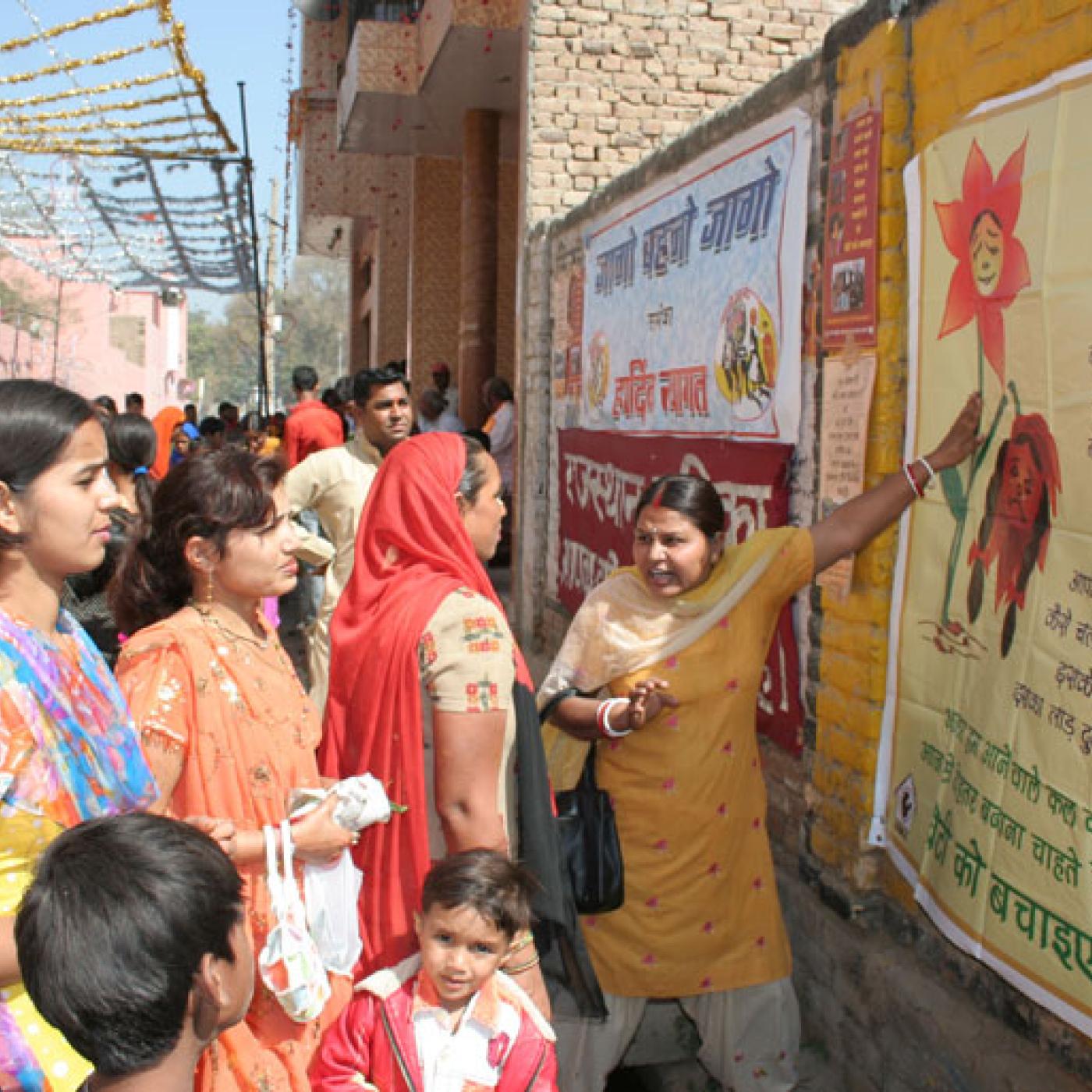Search
Filter by
Type
Publication date
Language
Type
Publication date
Language
News & Updates
Press Release
IFES Announces Winners of 2016 Photography Contest
Two compelling photographs depicting insightful moments of Election Day in India and voter registration in Nepal have won the top prizes of the International Foundation for Electoral Systems’ (IFES) 2016 Photography Contest. They were part of 10 photographs selected as finalists among the more than 100 images that were submitted to the democracy-themed competition.
Election FAQ
Elections in Kazakhstan: 2016 Parliamentary Elections
Kazakhstan's parliamentary elections were originally slated for late 2016, when the lower house’s five-year term was set to expire. However, following a parliamentary initiative, Kazakhstan’s President, Nursultan Nazarbaev, dissolved the lower house of the country’s Parliament, the Majilis, and called snap parliamentary elections for March 20.
News & Updates
Feature
Dignity for Indian Girls
Female feticide, infanticide and neglect of girls has been widely practiced in India with alarming implications on the rate of missing girls. By 2005, India’s ratio of girls to boys had declined so steeply that there were fewer than 900 Indian girls born for every 1,000 boys – one of the lowest rates worldwide.
Election FAQ
Elections in Kazakhstan: 2015 Presidential Election
Following incumbent President Nursultan Nazarbayev’s call for early elections, Kazakhstani citizens will head to the polls on April 26 to vote for their next President. In a nationwide address, President Nazarbayev said the presidential election had been moved in order to prevent an overlap with upcoming parliamentary elections.
News & Updates
Feature
An Undocumented Wonder: The Making of the Great Indian Election
On September 23, 2014, the International Foundation for Electoral Systems (IFES) hosted a conversation between IFES President and CEO Bill Sweeney and the former Chief Election Commissioner of the Election Commission of India (ECI), S.Y. Quraishi. Sweeney and Quraishi discussed Quraishi’s book An Undocumented Wonder: The Making of the Great Indian Election, a first-person account of the recent electoral history of India and a must-read for those interested in understanding how the world's largest democracy works. Quraishi was also presented with the IFES’ prestigious Hutar Award, which honors those who express a commitment to improving democratic practices.
News & Updates
Feature
An Undocumented Wonder: The Making of the Great Indian Election
On September 23, 2014, the International Foundation for Electoral Systems (IFES) hosted a conversation between IFES President and CEO Bill Sweeney and the former Chief Election Commissioner of the Election Commission of India (ECI), S.Y. Quraishi. Sweeney and Quraishi discussed Quraishi’s book An Undocumented Wonder: The Making of the Great Indian Election, a first-person account of the recent electoral history of India and a must-read for those interested in understanding how the world's largest democracy works. Quraishi was also presented with the IFES’ prestigious Hutar Award, which honors those who express a commitment to improving democratic practices.
During the event, Sweeney marveled at the immense technical undertaking of elections in India, noting that as the Chief Electoral Commissioner of India, Quraishi oversaw elections that involved over 11 million Indian government personnel. Indeed, elections in India generate both wonder and interest globally. Polls have been held at regular intervals in the country since independence, and on an unprecedented scale, surmounting the massive challenges posed by the geography of the land and the diversity of the Indian populace.
During the event, Sweeney marveled at the immense technical undertaking of elections in India, noting that as the Chief Electoral Commissioner of India, Quraishi oversaw elections that involved over 11 million Indian government personnel. Indeed, elections in India generate both wonder and interest globally. Polls have been held at regular intervals in the country since independence, and on an unprecedented scale, surmounting the massive challenges posed by the geography of the land and the diversity of the Indian populace.
News & Updates
Interview/Speech/Testimony
IFES Q&A with Former Chief Election Commissioner of India Dr. SY Quraishi
As a former Chief Election Commissioner of India, Dr. SY Quraishi has a deep understanding of the intricacies of how the world’s largest democracy works. He also has more than 35 years of experience in civil service. Dr. Quraishi is well known in India and abroad as a development thinker, for his inclusive style of leadership, and for bringing together wide varieties of groups and institutions to achieve the common objectives of development. In this Q&A, Dr. Quraishi discusses challenges the Election Commission of India (ECI) faces in preparing to conduct credible elections and shares lessons learned. India’s five-week general elections started on April 7.
News & Updates
Feature
A Rights-Based Approach to Electoral Security
In India, Maoist rebels killed 14 people in attacks in Chhattisgarh state as part of a campaign of violence aimed at disrupting the ongoing five-week national election in the world’s most populous democracy. Similarly, in the days leading up to the April 5 presidential election in Afghanistan, the Taliban unleashed a campaign of violence to discredit the electoral process and keep voters from the polls. Many hope this election will be known for delivering the first peaceful transfer of power in the country’s history.
News & Updates
Interview/Speech/Testimony
IFES Alumni Goes Back to School, Looks to Level the Global Playing Field
Alexandra Matthews, a graduate student at the University of Gothenburg in Sweden, tells us what she learned about empowering the vulnerable while at IFES, and how this work inspired her studies.
News & Updates
Feature
Empowering Underrepresented Populations
In this podcast, Vasu Mohan, IFES deputy director for Asia, and Alan Wall, country director in Nepal tell us about IFES' work to empower underrepresented populations.





